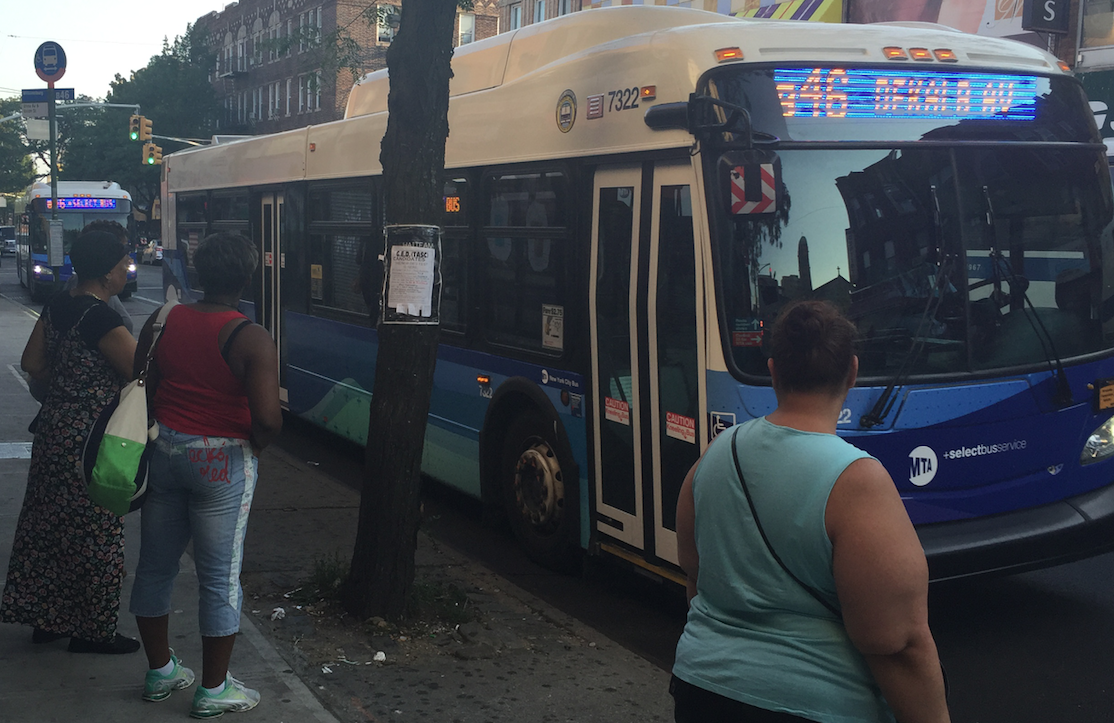There was a little bit of everything at today's City Council transportation hearing -- and we have the highlights for you right here.
What's in de Blasio's congestion plan?
The mayor has been teasing a plan to address congestion, but the only thing we know for sure is that it won't rely on the single most effective congestion-fighting policy out there -- road pricing.
So what's the plan? It sounds like City Hall will be focusing on curbside parking policy and delivery traffic efficiencies to cut congestion.
Transportation Commissioner Polly Trottenberg promised "smarter" delivery practices and said the city is looking into parking policy reforms. If those reforms involve raising the price of curbside parking during times of peak demand, it could cut traffic by reducing how long drivers cruise for open spots. Trottenberg said that 50,000 people have registered for the ParkNYC mobile parking payment app, which launched in December and could help ease the way for smarter curbside parking prices.
MTA still downplaying its ability to improve bus service
After months of shrugging off recommendations from advocates to improve bus service, last week MTA Chief of Operations Planning Peter Cafiero signaled a willingness to embrace several of those ideas. But today felt like more of a step backward.
In testimony, MTA Chief Financial Officer Michael Chubak downplayed the fall in NYC bus ridership by pinning it on riders switching to parallel subway lines. That may explain part of the decline, but it's no excuse to put off proven policies to speed up bus service and improve reliability.
In one exchange, Chubak was unable to say whether the MTA plans to follow through on a recommendation from advocates to reduce bus bunching by using real-time GPS to help drivers maintain more consistent headways. He said that real-time information from MTA Bus Time "might be a potential mechanism for undoing bus bunching," but that the agency had never explored the possibility.
That stumped Council Member David Greenfield. "You have the technology to actually make sure that bus bunching doesn't occur," he said.
Passing the buck on "Fair Fares"
Mayor de Blasio has declined to fund half-priced MetroCards for low-income New Yorkers, saying it should be covered by the state since the MTA is a state agency. Advocates have pegged the cost at $212 million annually, and today Trottenberg said the mayor "doesn't feel that he wants to add that large of a commitment to the city's budget" but is "open to having the discussion with the state."
The MTA doesn't want to have that discussion, however. "It's really a social services question," Chubak told transportation chair Ydanis Rodriguez. "We don't think it's a decision for the MTA to make. It's really a question of social policy, which would need to be made... by New York City."






